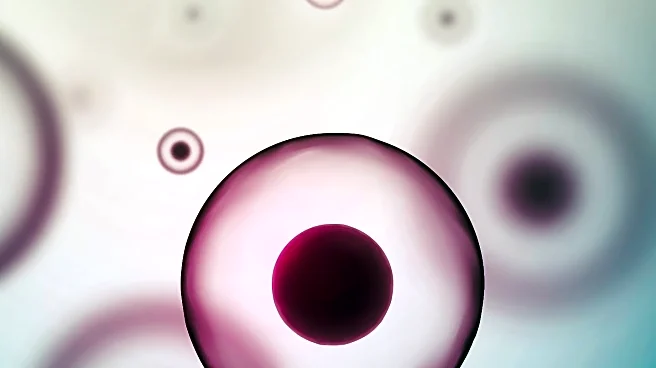What's Happening?
A recent study has revealed how aging affects Leydig cells in the testes, impacting hormone production. Researchers found that as mice age, the stiffness of testicular tissue increases, leading to mitochondrial dysfunction and increased reactive oxygen species (ROS) production. This process impairs the homeostasis of stem Leydig cells (SLCs), crucial for testosterone production. The study demonstrated that reducing tissue stiffness or inhibiting mechanosensitive signal transduction can improve cell differentiation and hormone production.
Why It's Important?
The findings provide insights into the biological mechanisms of aging and its impact on reproductive health. Understanding how tissue stiffness affects Leydig cells could lead to new treatments for age-related hormonal deficiencies. This research is significant for developing therapies to maintain hormone levels in aging populations, potentially improving quality of life and reducing age-related health issues.
What's Next?
Further research may explore potential treatments that target tissue stiffness or mechanosensitive pathways to preserve Leydig cell function in aging individuals. Clinical trials could be conducted to test the efficacy of such treatments in humans. Additionally, the study may prompt further investigation into the role of tissue biomechanics in other age-related conditions.
Beyond the Headlines
The study highlights the importance of considering biomechanical properties in aging research, which could lead to broader applications in regenerative medicine. It also raises questions about the ethical implications of manipulating biological processes to counteract aging.









